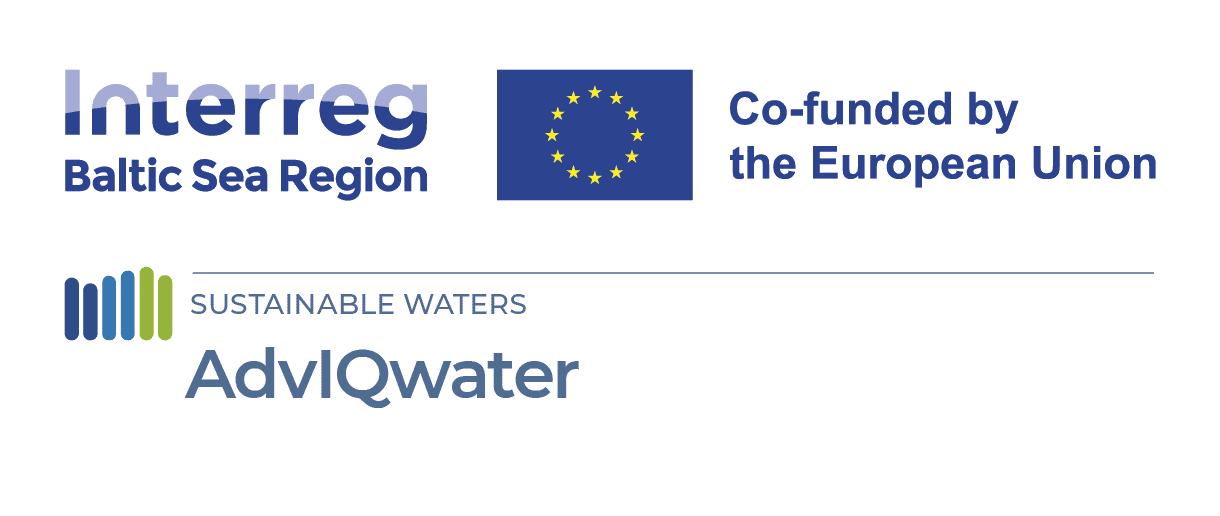Summer School on Advanced Technologies for Water Treatment
Project: AdvIQwater
Virtual Meeting & Physical Meeting
24. June - 01. July 2025
00:00 - 23:59 (BST)

Aquatic ecosystems are increasingly exposed to micropollutants, including pharmaceuticals, raising significant ecological and health concerns. These substances originate from human and veterinary medicine, agriculture, and domestic products, and they primarily enter water bodies mainly through wastewater and agricultural runoff. Due to their persistence in the environment, pharmaceuticals can accumulate in aquatic organisms, disrupt hormonal regulation, promote antibiotic resistance, and lead to reproductive toxicity.
In the AdvIQwater project, we developed and tested advanced and sustainable wastewater treatment technologies to remove pharmaceutical residues before they reach the Baltic Sea.
Advanced treatment methods based on photocatalysis, fungal (and bacterial/anammox) treatment, and biofilm (MBBR) systems were initially developed and tested separately, and ultimately combined into a hybrid treatment system to achieve practical, sustainable improvements in the removal of micropollutans.
1) Photocatalysis, as an artificial photosynthesis technology, was developed as a solar-driven oxidation step and served as the final water purification stage in the hybrid system, removing pharmaceutical residues remaining after biological treatment. A mobile installation was developed to support demonstrations and industry collaboration.
2) Fungal and anammox treatments served as intermediate biological steps, effectively degrading pharmaceuticals and heavy metals. The anammox process (anaerobic ammonium oxidation) enabled energy-efficient nitrogen removal and simultaneously achieved 75% removal of pharmaceuticals, reducing processing time to a 6-hour batch cycle. Fungal treatment complemented anammox by further removal of heavy metals, thereby bridging biological and chemical methods to improve overall effectiveness.
3) Furthermore, the biofilm (MBBR) system provided the treatment stage, focusing on aerobic micropollutant removal and reactor optimization, and offering environmentally friendly alternatives to ozonation or activated carbon treatment.
When combined sequentially — MBBR → fungal/anammox → photocatalysis — the system achieved over 90% removal of micropollutants, meeting the new EU Directive 2024/3019 standards. This represents the main innovation and outcome of the project: an integrated, energy-efficient, and scalable hybrid process for advanced wastewater treatment that can significantly improve water quality.
The best practice guideline for advanced water treatment indicates directions on effectively using advanced techniques and integrating them. We believe that insights gained from the piloting process will be invaluable to WWTPs, enabling them to make informed decisions regarding the most suitable technologies for enhanced wastewater treatment.
Thanks to Interreg BSR support, the developed solutions provided initial outlines for the broader adoption of advanced treatment processes, leading to better quality of the effluents released from wastewater treatment plants into the Baltic Sea Region.
The results were shared through dialogues, trainings, and guidance with target groups in the partner countries during project implementation and at the final seminars, ensuring the efficient use of the results and the further implementation of advanced wastewater treatment technology among Baltic see region.
The established cooperation continues, and we are open to further collaboration to implement advanced treatment systems for the removal of micropollutants.
Project: AdvIQwater
Virtual Meeting & Physical Meeting
24. June - 01. July 2025
00:00 - 23:59 (BST)
Project: AdvIQwater
Virtual Meeting & Physical Meeting
09. - 10. October 2024
09:00 - 14:00 (CEST)
Project: AdvIQwater
Virtual Meeting
08. February 2023
09:00 - 11:15 (CET)
Project: AdvIQwater
Virtual Meeting
06. December 2022
09:00 - 11:00 (CET)
Interactive map showing pilot locations. Use the arrow keys to move the map view and the zoom controls to zoom in or out. Press the Tab key to navigate between markers. Press Enter or click a marker to view pilot project details.